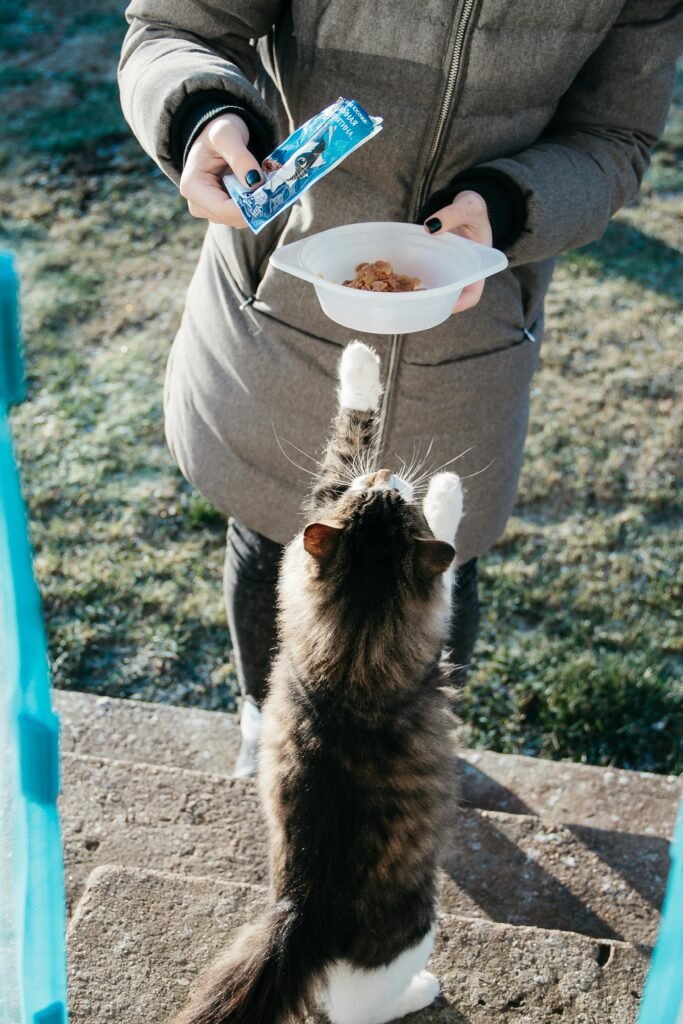Learn how working parents can care for their pets during winter with tips on nutrition, warmth, and monitoring their pets when away.
Winter brings unique challenges for pet owners, especially for working parents. With colder temperatures and shorter daylight hours, pets require extra attention to ensure they stay warm, dry, and well-nourished. For those who are away from home during the day, it can be tough to keep track of their pets’ needs. However, with some preparation and helpful strategies, it’s possible to care for pets effectively, even during winter months.
Maintaining Proper Nutrition During the Cold Months
One of the most important factors to consider in winter is your pet’s nutrition. Cold weather increases the energy expenditure of pets, which means they need more food to stay warm. For dogs, cats, and other animals, switching to a diet with more protein and fats is beneficial during colder months. These nutrients help them maintain body heat and support their immune systems.
Additionally, working parents should ensure their pets have access to food at regular intervals. Automatic feeders can be very useful when you’re not around to feed your pet. For pets that need wet food, leaving it in a bowl during the day may cause it to spoil, so consider an automatic wet food dispenser or a timed feeding system. Keeping meals consistent helps pets stay energized and healthy throughout the day.

Keeping Your Pets Warm and Dry Indoors
In winter, it’s essential to keep your pets dry and warm. Cold, damp conditions can lead to health issues like hypothermia, especially for pets with short fur or those who are older. If you have a dog, especially a smaller breed or a senior dog, investing in a pet sweater or coat is a smart decision. These garments help to maintain body heat during walks or bathroom breaks outside.
For indoor pets like cats, it’s important to ensure they have a warm, comfortable space to rest. Heated pet beds or blankets can make a huge difference in keeping them cozy. Placing their beds away from drafts and ensuring the area is dry will encourage them to stay put during cold weather. Furthermore, using space heaters in pet areas can help maintain a warm atmosphere, but make sure to secure the heater to avoid accidents.
Outdoor Safety: Protecting Your Pets from Harsh Conditions
When winter weather gets extreme, it’s important to protect your pets when they are outdoors. Snow, ice, and salt can irritate your pet’s paws, causing discomfort and potential injury. Before taking your dog out for walks, check the forecast. Avoid walking during severe snowstorms or icy conditions, which can be harmful to both pets and owners.
Dog boots are an excellent solution for protecting paws. They help keep paws dry and shield them from harsh chemicals like road salt. After walks, wipe your pet’s paws with a damp cloth to remove any snow or salt that may have accumulated. For cats, it’s best to keep them indoors during cold spells. If your cat goes outside, make sure they have access to shelter to keep them safe from freezing temperatures.
Hydration is Just as Important in Winter
While it might seem like pets need less water in winter, the truth is they still need to stay hydrated. The dry air from indoor heating systems can lead to dehydration, so it’s essential to ensure that your pet always has access to fresh water. You can use heated water bowls to prevent the water from freezing in colder environments.
If your pet is reluctant to drink cold water, try serving it at room temperature or adding a bit of low-sodium broth to encourage drinking. Cats, in particular, tend to drink less water during winter, but proper hydration is just as important for them. Wet food can also help boost hydration levels for pets that are picky drinkers.
Mental and Physical Stimulation When You’re Away
Even though working parents are often away during the day, pets still need exercise and mental stimulation. Dogs, especially, need regular activity to avoid becoming bored or anxious. If you’re unable to take your dog for walks during the day, try to provide alternatives. Some pet owners install indoor dog parks or dog treadmill devices to help their pets burn off energy.
For cats, interactive toys are a great way to keep them entertained. Laser pointers, puzzle feeders, or treat-dispensing toys will keep them engaged and prevent destructive behavior. You could also consider hiring a pet sitter or dog walker during the day to ensure your pet gets the exercise and interaction they need. Additionally, leaving the TV on or playing music can help create a calming environment while you’re away.
Monitoring Your Pets When You’re Not Home
One of the biggest concerns for working parents is knowing what’s going on with their pets while they’re away. Thanks to technology, monitoring your pet is now easier than ever. Pet cameras with two-way audio allow you to check in on your pets, talk to them, and even reward them with treats remotely.
Smart pet products such as automatic feeders, water dispensers, and heated pet beds can be controlled via smartphone apps. This technology helps you monitor and adjust your pet’s care in real time. If you’re worried about your pet’s health or behavior, some cameras even have motion sensors that alert you when your pet is active or behaving unusually. This gives you peace of mind when you’re not home, knowing your pet is safe and comfortable.
Regular Grooming for Winter Coat Care
Winter can cause dry skin and coat issues for pets, so regular grooming is key. Brushing your pet’s fur not only keeps them looking neat but also helps distribute natural oils, which can protect their skin from the drying effects of winter air. For dogs and cats with longer fur, regular trimming can also help prevent mats, which can be uncomfortable and cause skin irritation.
In addition to brushing, using moisturizing shampoos designed for pets can help prevent dry, flaky skin. Bathing should be kept to a minimum during winter to avoid further drying out their skin. When you do bathe your pet, make sure to dry them completely afterward, especially if they have thick fur.
Creating a Safe Home Environment
Finally, a safe and comfortable home environment is vital for your pets’ well-being, especially when you are not around. Make sure all areas where your pets roam are secure, including pet-proofing electrical cords, fireplaces, and space heaters. Pets can be curious, and during winter, they may seek out warmth from dangerous sources like electric heaters.
Set up a cozy area where your pet can retreat when they feel cold or tired. Keep blankets, warm beds, and toys in their designated spots. If you are leaving them at home for an extended period, consider using a smart thermostat to regulate the temperature. This will ensure your pets are comfortable even when you’re away.
Conclusion: Winter Care Tips for Working Parents
Caring for pets in winter can be challenging for working parents, but it’s entirely possible with some thoughtful planning. By ensuring your pets stay well-nourished, warm, and hydrated, you’ll help them thrive during the colder months. Additionally, monitoring their activities with the help of technology provides peace of mind when you’re away. With the right preparations and daily care, you can give your pets the comfort and safety they need all winter long.
